Ultimate Guide to PHP Web Scraping Libraries for 2025
When it comes to extracting data from the web, PHP has a robust suite of libraries that make scraping a breeze. Whether you’re building a scraping bot for your website or extracting valuable data for analysis, using the right PHP web scraping tool can make all the difference. In 2025, here are the top libraries you should have on your radar. The Basics of PHP Web Scraping Library At its core, a PHP web scraping library is a tool designed to extract data from web pages. It helps automate several steps in the scraping process, such as connecting to web servers, parsing HTML, and sometimes even rendering JavaScript content. In short, these libraries allow you to send HTTP requests, parse content, and retrieve valuable data—all with minimal effort on your part. PHP scraping libraries generally fall into four categories: HTTP clients – to send requests and handle responses. HTML parsers – for parsing and extracting data from static pages. Browser automation tools – for scraping dynamic pages that rely on JavaScript. All-in-one frameworks – that combine features from the above categories. Let’s break down the best options out there today. 1. Panther The Complete All-in-One Solution Panther is a powerhouse when it comes to scraping dynamic websites. Developed by the Symfony team, it provides a rich API that lets you interact with both static and dynamic web pages. Whether you're dealing with a page that runs complex JavaScript or just a simple HTML structure, Panther has you covered. What sets Panther apart is its ability to simulate real browser interactions. By leveraging php-webdriver, it gives you full JavaScript support for modern sites. Plus, it has a lightweight mode for scraping static content efficiently. If you're familiar with the Symfony ecosystem, you’ll feel right at home using Panther’s intuitive syntax. With support for both CSS selectors and XPath for querying the DOM, it’s one of the most versatile tools for PHP scraping. Key Features: Real browser automation (Chrome, Firefox) Full support for JavaScript execution Screenshot capabilities Easy integration with Symfony Installation: composer require symfony/panther Pros: Great for both static and dynamic content Rich API for automation Cons: Requires manual WebDriver downloads Limited support for XML documents 2. Guzzle The HTTP Client That Handles It All Guzzle is a leading PHP HTTP client, renowned for its ability to handle both synchronous and asynchronous requests. Whether you need to fetch a simple page or stream large payloads, Guzzle's flexible API makes it easy to integrate into any project. It also supports advanced features like cookies, headers, and middleware for customizing requests. Guzzle shines when you need reliable, high-performance HTTP requests, especially when working with APIs or fetching content from static pages. Its PSR-7 compliance also ensures interoperability with other PHP libraries. Key Features: Asynchronous and synchronous requests Middleware support for customization Supports streaming large files Installation: composer require guzzlehttp/guzzle Pros: High customization potential Handles complex HTTP requests with ease Cons: Documentation hasn't been updated in years 3. DomCrawler The Symfony Scraping Expert Part of the Symfony ecosystem, DomCrawler is a PHP component built for parsing and navigating HTML/XML documents. If you need to extract data from well-structured HTML, DomCrawler is a solid choice. It offers a clean, intuitive API for DOM traversal and allows you to use XPath queries to pinpoint elements. When combined with Guzzle or HttpClient, DomCrawler becomes a powerful tool for scraping static websites. Key Features: Supports both HTML and XML Native XPath support Special classes for interacting with links, forms, and images Installation: composer require symfony/dom-crawler Pros: Deep integration with the Symfony framework Powerful traversal capabilities Cons: Limited support for filtering child elements 4. HttpClient Symfony's Lightweight HTTP Solution If you're looking for a fast, modern HTTP client, HttpClient is a great option. It’s lightweight, feature-packed, and works seamlessly with other Symfony components. This component supports both synchronous and asynchronous requests, and boasts features like HTTP/2 support, automatic decompression, and built-in retry logic. If you’re already working with Symfony, HttpClient will integrate smoothly with your existing stack. Key Features: Asynchronous and synchronous operations Advanced HTTP configurations Integrates easily with Symfony components like DomCrawler Installation: composer require symfony/http-client Pros: High performance for HTTP requests Works well with other Symfony tools Cons: May be complex to set up outside of Symfony projects 5. php-webdriver Automate Browsers Like a Pro For dynamic sites where JavaScript is king, php-webdr
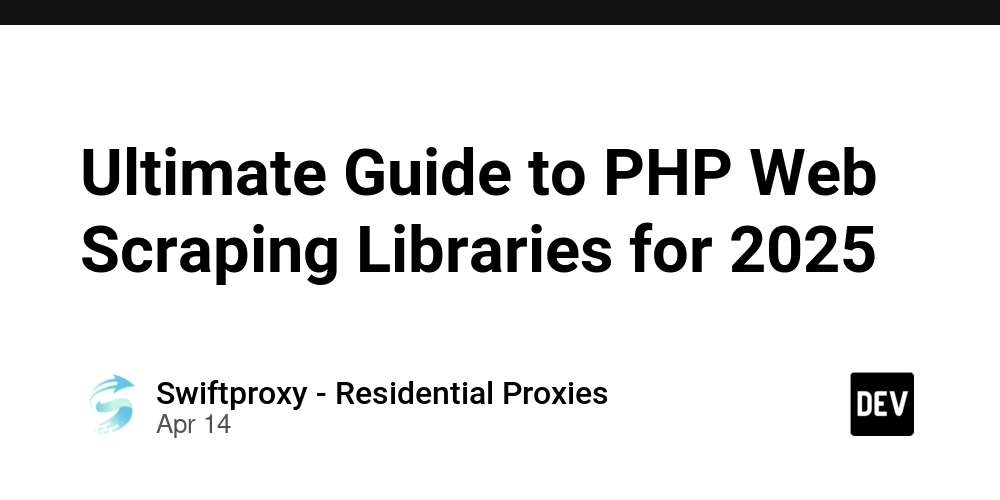
When it comes to extracting data from the web, PHP has a robust suite of libraries that make scraping a breeze. Whether you’re building a scraping bot for your website or extracting valuable data for analysis, using the right PHP web scraping tool can make all the difference. In 2025, here are the top libraries you should have on your radar.
The Basics of PHP Web Scraping Library
At its core, a PHP web scraping library is a tool designed to extract data from web pages. It helps automate several steps in the scraping process, such as connecting to web servers, parsing HTML, and sometimes even rendering JavaScript content. In short, these libraries allow you to send HTTP requests, parse content, and retrieve valuable data—all with minimal effort on your part.
PHP scraping libraries generally fall into four categories:
HTTP clients – to send requests and handle responses.
HTML parsers – for parsing and extracting data from static pages.
Browser automation tools – for scraping dynamic pages that rely on JavaScript.
All-in-one frameworks – that combine features from the above categories.
Let’s break down the best options out there today.
1. Panther The Complete All-in-One Solution
Panther is a powerhouse when it comes to scraping dynamic websites. Developed by the Symfony team, it provides a rich API that lets you interact with both static and dynamic web pages. Whether you're dealing with a page that runs complex JavaScript or just a simple HTML structure, Panther has you covered.
What sets Panther apart is its ability to simulate real browser interactions. By leveraging php-webdriver, it gives you full JavaScript support for modern sites. Plus, it has a lightweight mode for scraping static content efficiently.
If you're familiar with the Symfony ecosystem, you’ll feel right at home using Panther’s intuitive syntax. With support for both CSS selectors and XPath for querying the DOM, it’s one of the most versatile tools for PHP scraping.
Key Features:
Real browser automation (Chrome, Firefox)
Full support for JavaScript execution
Screenshot capabilities
Easy integration with Symfony
Installation:
composer require symfony/panther
Pros:
Great for both static and dynamic content
Rich API for automation
Cons:
Requires manual WebDriver downloads
Limited support for XML documents
2. Guzzle The HTTP Client That Handles It All
Guzzle is a leading PHP HTTP client, renowned for its ability to handle both synchronous and asynchronous requests. Whether you need to fetch a simple page or stream large payloads, Guzzle's flexible API makes it easy to integrate into any project. It also supports advanced features like cookies, headers, and middleware for customizing requests.
Guzzle shines when you need reliable, high-performance HTTP requests, especially when working with APIs or fetching content from static pages. Its PSR-7 compliance also ensures interoperability with other PHP libraries.
Key Features:
Asynchronous and synchronous requests
Middleware support for customization
Supports streaming large files
Installation:
composer require guzzlehttp/guzzle
Pros:
High customization potential
Handles complex HTTP requests with ease
Cons:
Documentation hasn't been updated in years
3. DomCrawler The Symfony Scraping Expert
Part of the Symfony ecosystem, DomCrawler is a PHP component built for parsing and navigating HTML/XML documents. If you need to extract data from well-structured HTML, DomCrawler is a solid choice. It offers a clean, intuitive API for DOM traversal and allows you to use XPath queries to pinpoint elements.
When combined with Guzzle or HttpClient, DomCrawler becomes a powerful tool for scraping static websites.
Key Features:
Supports both HTML and XML
Native XPath support
Special classes for interacting with links, forms, and images
Installation:
composer require symfony/dom-crawler
Pros:
Deep integration with the Symfony framework
Powerful traversal capabilities
Cons:
Limited support for filtering child elements
4. HttpClient Symfony's Lightweight HTTP Solution
If you're looking for a fast, modern HTTP client, HttpClient is a great option. It’s lightweight, feature-packed, and works seamlessly with other Symfony components. This component supports both synchronous and asynchronous requests, and boasts features like HTTP/2 support, automatic decompression, and built-in retry logic.
If you’re already working with Symfony, HttpClient will integrate smoothly with your existing stack.
Key Features:
Asynchronous and synchronous operations
Advanced HTTP configurations
Integrates easily with Symfony components like DomCrawler
Installation:
composer require symfony/http-client
Pros:
High performance for HTTP requests
Works well with other Symfony tools
Cons:
May be complex to set up outside of Symfony projects
5. php-webdriver Automate Browsers Like a Pro
For dynamic sites where JavaScript is king, php-webdriver is a must. This library is essentially the PHP equivalent of Selenium, providing powerful browser automation features. You can simulate user interactions, from clicking buttons to filling out forms and waiting for content to load.
If you're scraping websites that require JavaScript rendering, php-webdriver is your best bet.
Key Features:
Supports Chrome, Firefox, and more
Full browser automation with headless mode
JavaScript execution
Installation:
composer require php-webdriver/webdriver
Pros:
Full browser automation support
Great for interactive, JavaScript-heavy websites
Cons:
Requires additional setup with Selenium or ChromeDriver
6. cURL The Low-Level Scraping Veteran
cURL is as close to the raw power of HTTP as you can get in PHP. This built-in tool gives you total control over HTTP requests, headers, cookies, and more. While it’s perfect for simpler scraping tasks, it does require a bit of effort to master due to its low-level API.
If you need to scrape static pages and want to avoid additional dependencies, cURL is an excellent choice.
Key Features:
Supports all major HTTP methods
Handles headers, cookies, and redirects
Low-level control for custom requests
Installation:
cURL comes pre-installed with PHP, though it may need to be enabled in php.ini.
Pros:
Zero dependencies—built right into PHP
High flexibility for advanced scraping needs
Cons:
Low-level API can be complex to work with
Lack of built-in retry logic for failed requests
7. Simple HTML DOM Parser Easy, Intuitive, and Fast
This modern fork of the original Simple HTML DOM Parser offers a more efficient, updated approach to parsing HTML. It uses PHP’s DOMDocument class for better performance, while still offering a simple, intuitive API for querying HTML elements.
If you're working with static HTML pages and need a tool that gets the job done quickly, this is a solid choice.
Key Features:
Simple, jQuery-like syntax
Works with malformed or partially invalid HTML
UTF-8 support out of the box
Installation:
composer require voku/simple_html_dom
Pros:
Extremely easy to use
Great for quick HTML parsing tasks
Cons:
Limited support for modern JavaScript-heavy sites
Final Thoughts
Choosing the right PHP web scraping library depends on your project’s needs. Whether you require full browser automation, need to handle HTTP requests, or are focused on parsing HTML, there’s a library that fits. Explore these tools at your own pace—each one offers strengths that can enhance your project in 2025.










































































































































































![[The AI Show Episode 144]: ChatGPT’s New Memory, Shopify CEO’s Leaked “AI First” Memo, Google Cloud Next Releases, o3 and o4-mini Coming Soon & Llama 4’s Rocky Launch](https://www.marketingaiinstitute.com/hubfs/ep%20144%20cover.png)

















































































































































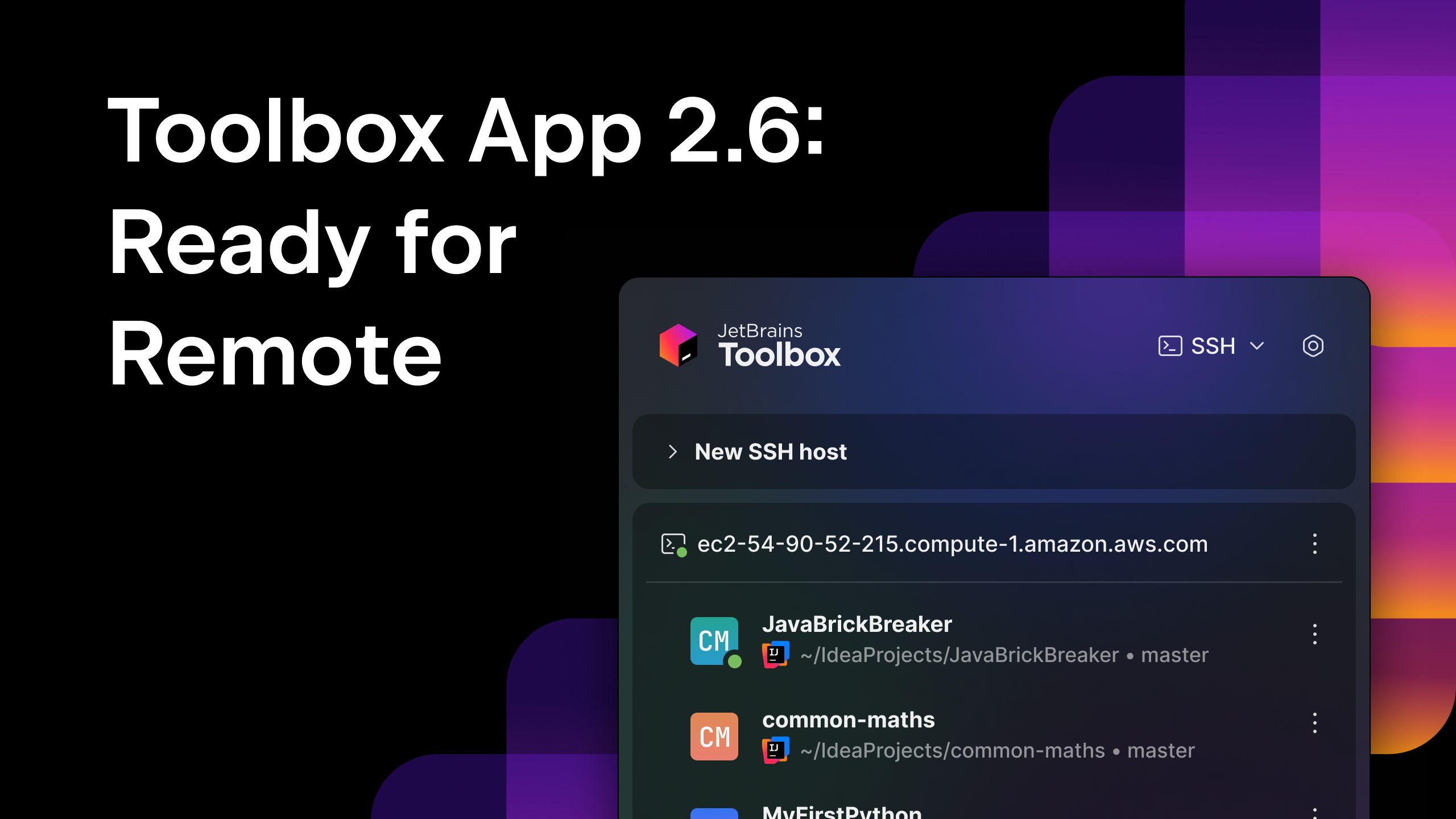





























-Baldur’s-Gate-3-The-Final-Patch---An-Animated-Short-00-03-43.png?width=1920&height=1920&fit=bounds&quality=70&format=jpg&auto=webp#)













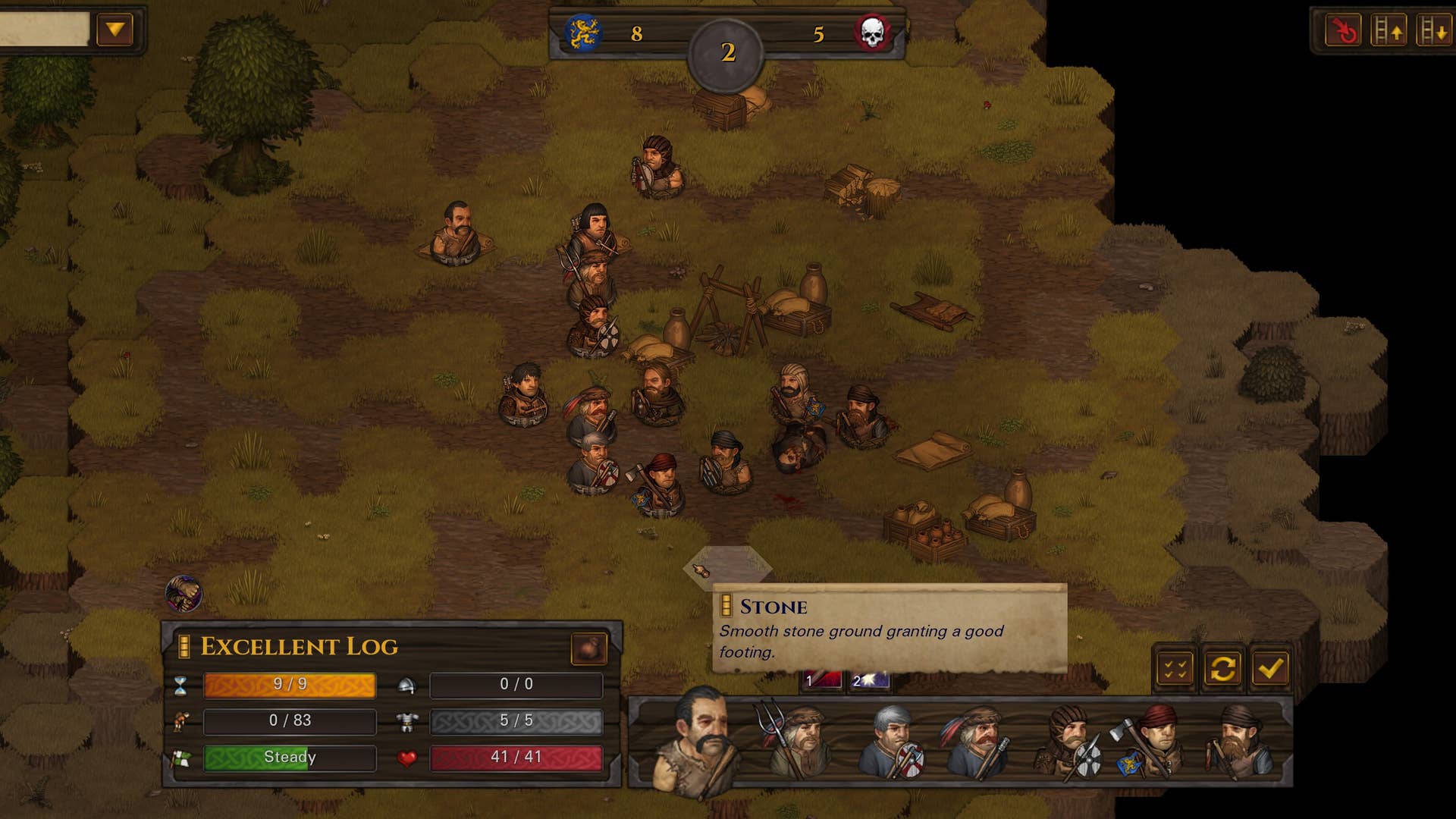























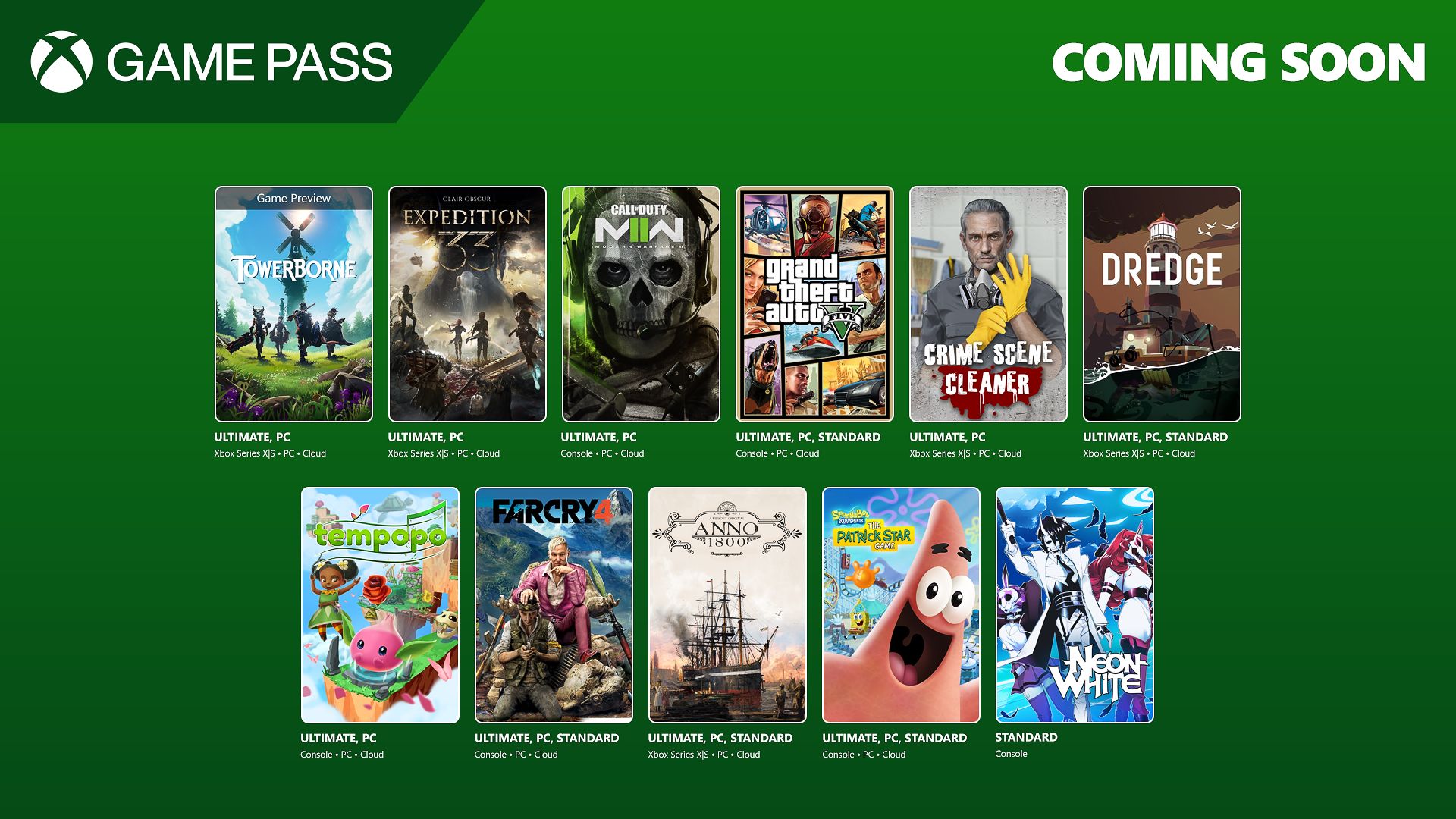



















.png?#)































_Aleksey_Funtap_Alamy.jpg?width=1280&auto=webp&quality=80&disable=upscale#)










































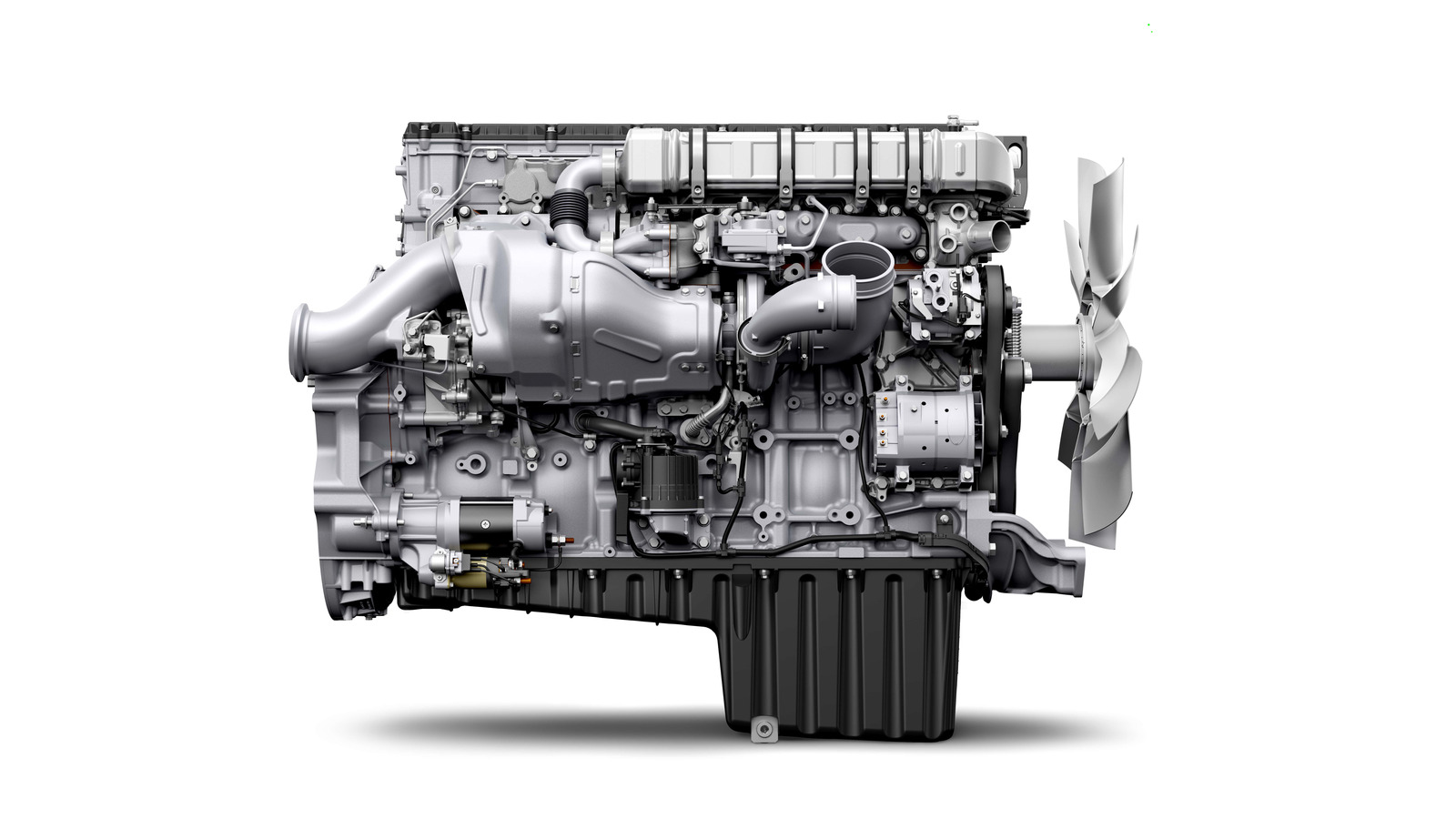















































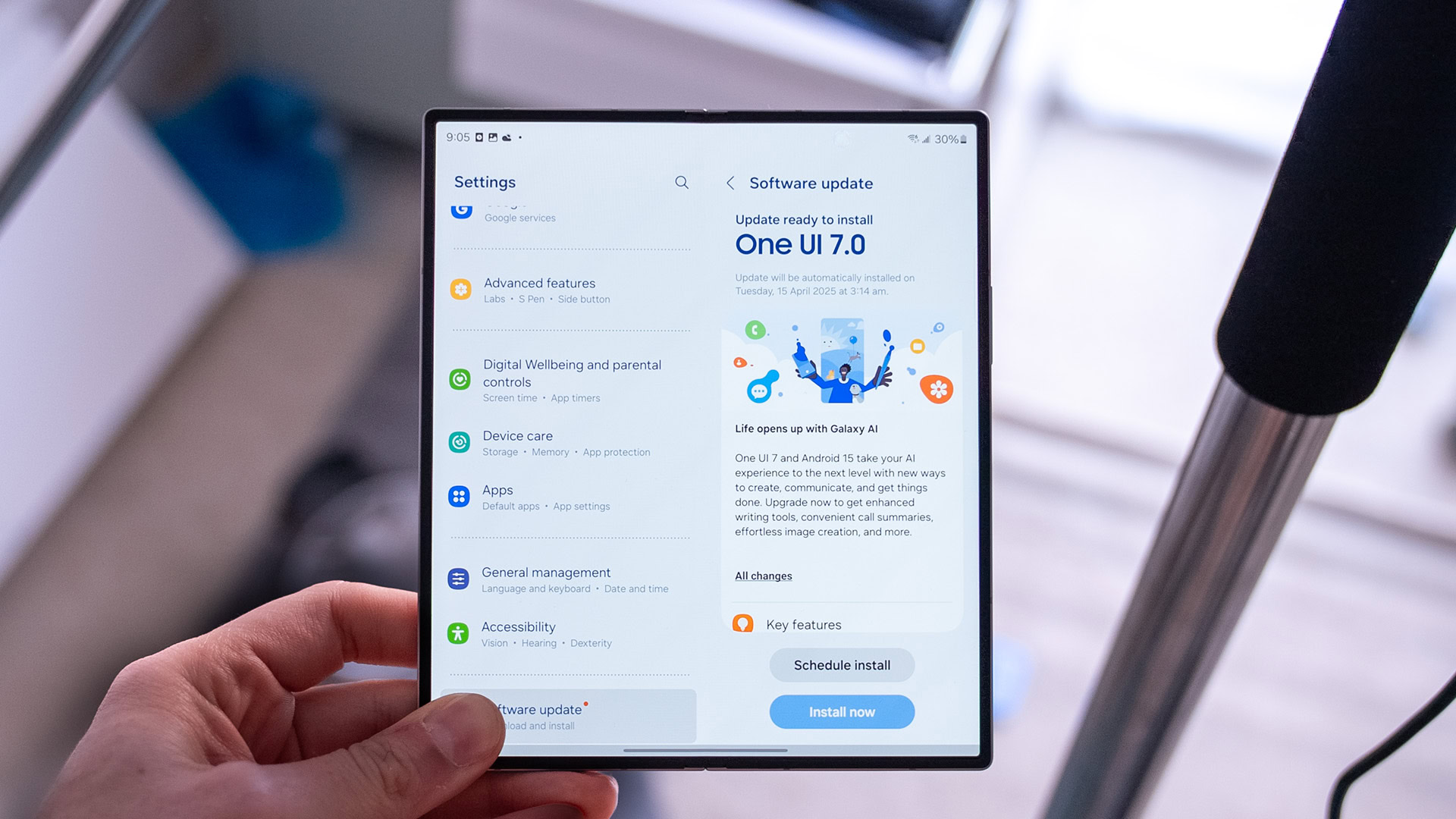





![‘Samsung Auto’ is an Android Auto alternative for Galaxy phones you can’t use [Gallery]](https://i0.wp.com/9to5google.com/wp-content/uploads/sites/4/2025/04/samsung-auto-12.jpg?resize=1200%2C628&quality=82&strip=all&ssl=1)









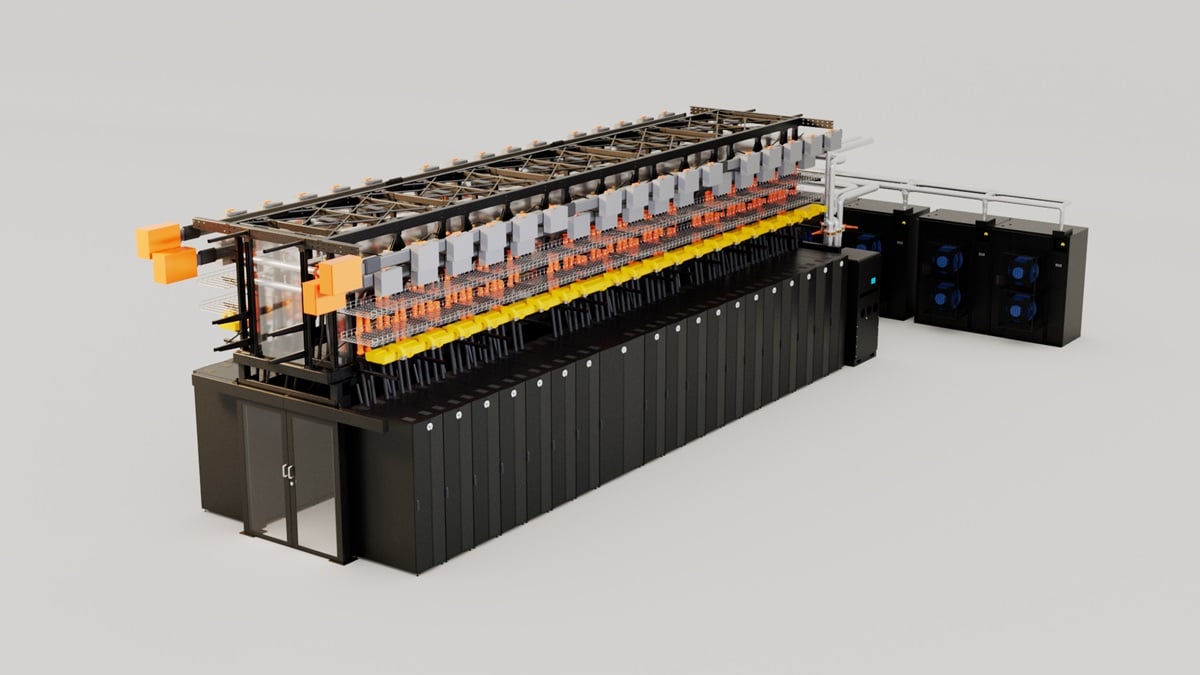



![Apple's Foldable iPhone Won't Have Face ID for Under-Display Camera [Rumor]](https://www.iclarified.com/images/news/97017/97017/97017-640.jpg)

![Apple Seeds tvOS 18.5 Beta 2 to Developers [Download]](https://www.iclarified.com/images/news/97011/97011/97011-640.jpg)
![Apple Releases macOS Sequoia 15.5 Beta 2 to Developers [Download]](https://www.iclarified.com/images/news/97014/97014/97014-640.jpg)















































































































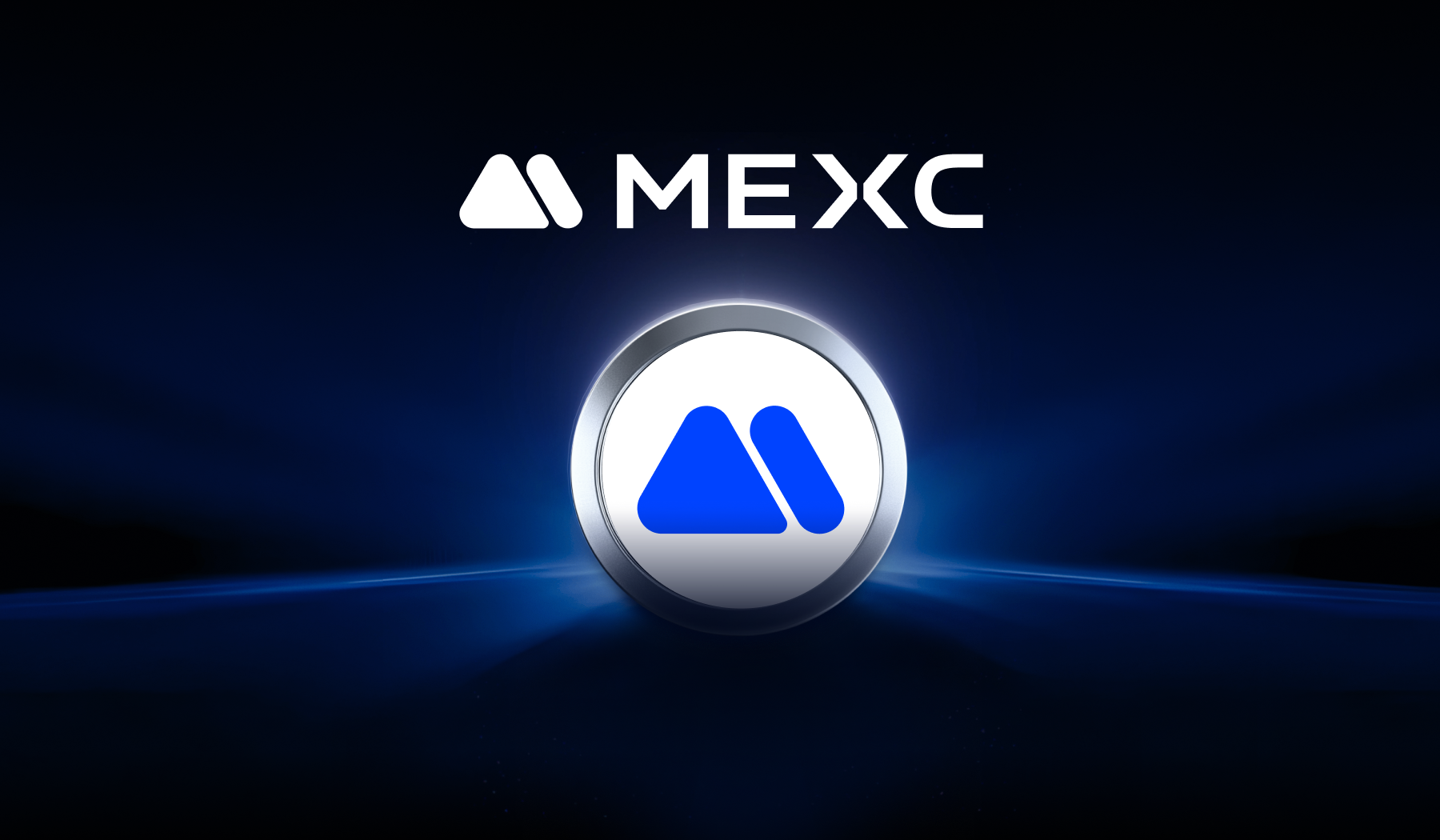
















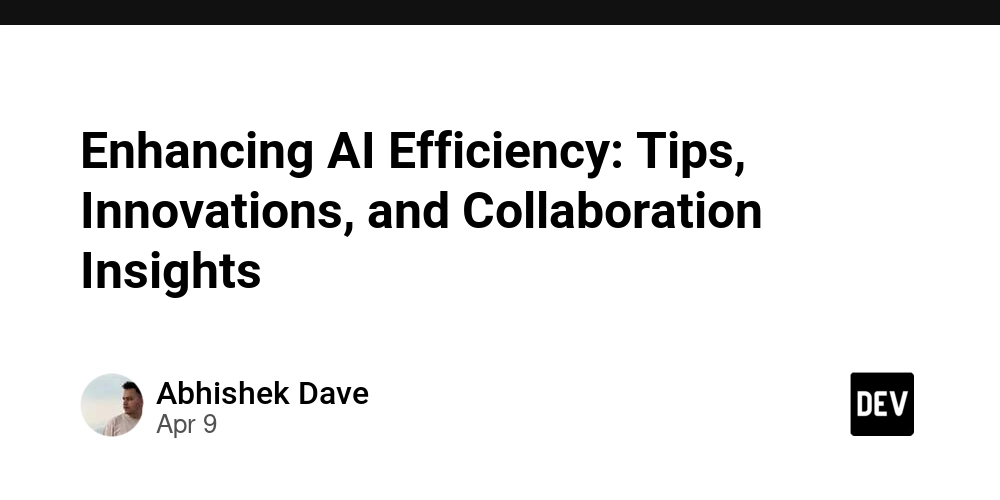
 It provides a super simple scripting method to automate your command lines!](https://media2.dev.to/dynamic/image/width%3D1000,height%3D500,fit%3Dcover,gravity%3Dauto,format%3Dauto/https:%2F%2Fdev-to-uploads.s3.amazonaws.com%2Fuploads%2Farticles%2Foihf90mnbnkfy9u9gpe3.png)
